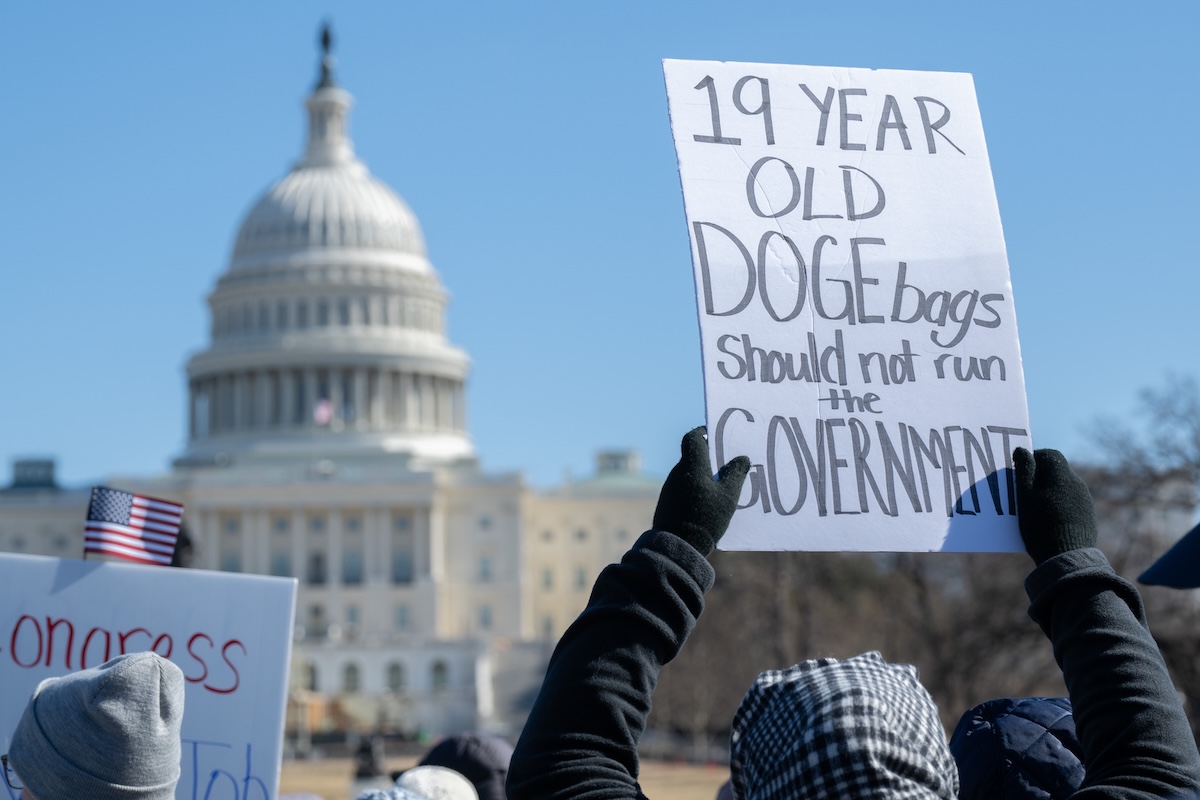
Elon Musk’s foray into politics earned him an influential role as Donald Trump’s right-hand man, but in the long run, it may cost him Tesla.
On Wednesday, Tesla reported that global car deliveries plunged by 13% from a year ago to 336,681 in the first quarter, well below analysts’ estimates of 396,960.
In the auto industry, a “delivery” refers to vehicles that are shipped to their final location once the sale has been finalized. Fewer deliveries mean fewer car sales and less revenue overall.
As The Wall Street Journal reported, EV buyers who were once loyal to Musk are now shunning the billionaire entrepreneur and his brand over his involvement in “far-right” politics.
Recent surveys suggest that Musk is digging Tesla into a hole that is going to be difficult to get out of.
A poll by Yahoo Finance and YouGov found that 67% of Americans wouldn’t consider buying a Tesla, largely due to Musk’s political antics.
Morgan Stanley surveyed its clients and found that 85% of respondents believe Musk’s political activism is negatively impacting Tesla’s brand and underlying business.
Some call it a “brand crisis,” while others say it’s a full-blown consumer backlash.
That backlash is also being felt in Tesla’s global markets. In Germany, for example, Tesla’s new car registrations plunged by 76.3% in February compared to a year ago.
Sales from Tesla’s China operations, where vehicles are built and shipped to foreign markets, witnessed a 49% decline in February.
An ill-timed crisis
Tesla’s brand is losing prestige at a time when competition in the electric vehicle market is ramping up.
The company’s U.S. sales are not only in decline, but so is its market share. Even before the recent political backlash, Tesla’s market share had been declining for years.
According to Cox Automotive, Tesla held 79% of the U.S. EV market in 2020. By 2023, its share had fallen to roughly 50%. Cox expects a further slide in 2025 as competition from legacy automakers continues to grow.
“Without a significant change in strategy to develop new products with widespread appeal, Tesla’s high-water mark as an automaker may be in the past,” said Cox’s director of industry insights, Stephanie Valdez Streaty.
Meanwhile, Tesla’s performance in China has long been a source of concern as local rival BYD continues to scale its cheaper EV and plug-in hybrid lineup.
In fact, BYD’s leadership is expected to extend far beyond China.
Counterpoint Research recently predicted that BYD will overtake Tesla as the top global EV seller as soon as this year. This reinforces the fact that Tesla’s struggles aren’t limited to one market or jurisdiction.
If Musk’s politics and declining market share aren’t bad enough, let’s also not forget about the recent controversy involving Tesla’s opaque financial statements, which raised eyebrows when an analyst discovered there was $1.4 billion “missing” from the company’s books.
While there’s likely a good explanation for the “missing” line items, the real canary in the coal mine for Tesla could be its ballooning debt levels.
As Investors Observer recently reported, Tesla is raising billions of dollars in debt despite boasting a fortress-like cash balance. Analysts say it doesn’t add up.
“The question of why a cash-rich company raised new debt in both of the last two years still stands — as does the trajectory of that cash balance if car sales continue to crater,” said Dan McCrum of the Financial Times.
Investors agree that Musk needs to leave politics aside
If there’s one silver lining to take away from Tesla’s PR debacle, it’s that much of it would simply go away if Musk stepped away from politics.
On Wednesday, Tesla stock rose sharply after Politico reported that Musk could soon depart his role at the Department of Government Efficiency (DOGE), where he has been on a crusade to eliminate public-sector largesse.
(The irony is that Musk’s businesses have received at least $38 billion in government funding over the years, according to the Washington Post, but that’s a subject for another time.)
The response from Wall Street clearly suggests that investors view Musk’s resignation from government work as a good thing for Tesla.
However, White House press secretary Karoline Leavitt quickly dispelled the report, calling it “garbage.”
In a social media post, Leavitt said Musk and President Trump have “both publicly stated that Elon will depart from public service as a special government employee when his incredible work at DOGE is complete.”
In the meantime, there could be more pain ahead for Tesla investors. Nobody feels that pain more than Musk.
“My Tesla stock and the stock of everyone who holds Tesla has gone [...] roughly in half,” Musk told a Republican rally in Green Bay, Wisconsin, over the weekend. “This is a very expensive job, is what I’m saying.”
At its peak, Tesla’s market cap was well north of $1.5 trillion but has now fallen to roughly $900 billion.
Your email address will not be published. Required fields are markedmarked